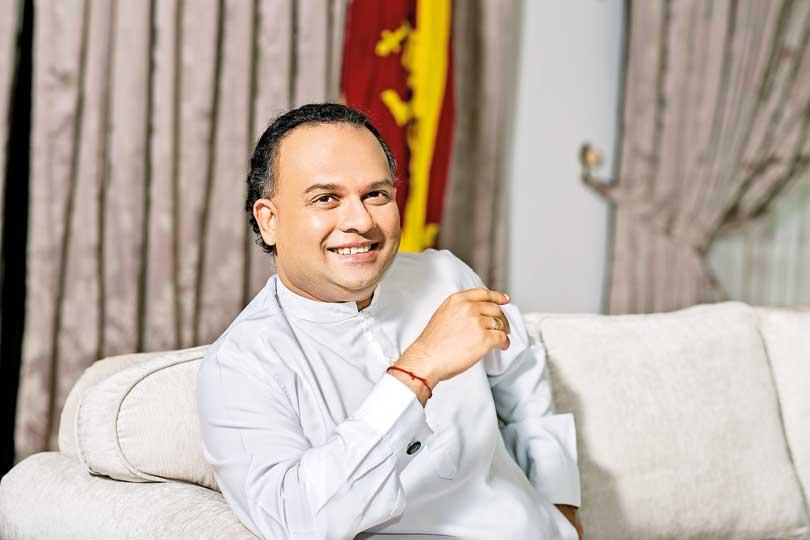Reply To:
Name - Reply Comment

“A genuine leader is not a searcher for consensus but a moulder of consensus.”
~ Martin Luther King Jr.
 Finally, we heard a saner, saner than usual, voice in the midst of national insanity. It was an honest voice in a riotous cacophony of dishonesty; an urgent message in a country searching for immediate action and an apolitical behaviour in a political world. Honesty is a very rare commodity in the political marketplace today. When the general public are demanding honesty of their elected representatives, it is precisely what they aren’t getting today, honesty.
Finally, we heard a saner, saner than usual, voice in the midst of national insanity. It was an honest voice in a riotous cacophony of dishonesty; an urgent message in a country searching for immediate action and an apolitical behaviour in a political world. Honesty is a very rare commodity in the political marketplace today. When the general public are demanding honesty of their elected representatives, it is precisely what they aren’t getting today, honesty.
On a grey Thursday morning, June 6, inside the galleries of the Bandaranaike Memorial International Conference Hall (BMICH), Plantation Industries Minister Navin Dissanayake enunciated an uncommon truth. His body language signified the apparent discomfort and frustration he was going through. His diction, both Sinhalese and English, was perfect; it was simple and to the point and the assembly he addressed could not have been more suited to the occasion and more valid in the national context – young graduates of the National Institute of Plantation Management (NIPM). And his honesty was devastating. What echoed inside the walled room rendered relevance and validity to what most of the Cabinet ministers may have been experiencing, yet not willing to go where Navin Dissanayake dared to.
As a matter of fact, as a keen observer of national politics and its innumerable challenges to the country, the writer, having secured an invitation to the event, could not help but be shocked, not only at the gravity of the substance of his speech but more so at the very ease with which he delivered it. One thing was sure. He was standing in the shadow of a great legacy: Gamini Dissanayake, Navin’s father, was known to be fearless in the face of great political danger. When the subject of disenfranchisement of Sirimavo Bandaranaike was being discussed in the Cabinet of J.R. Jayewardene in August 1980, Gamini Dissanayake was the lone voice in there, not to defend Mrs. Bandaranaike’s indefensible acts of dishonesty regarding the abuse of power in terms of the Land Reform Law of 1975 (Laws Nos. 1 of 1972, 39 of 1975. 1. This law may be cited as the Land Reform Law; (b) To take over agricultural land owned by any person in excess of the ceiling), but the punishment that was accrued to that abuse of power.
It is one thing to be convinced of an obvious authenticity of a truism, but totally another realm of possibilities that open up when one has the courage of conviction to express oneself so candidly and with thorough humility.
The ethnic violence that erupted in July 1983 might not be fresh in the minds of our people, yet the inner psyche of our people has not changed, nor has it been able to adapt to changing world order of accommodation and reconciliation
It is not a very common practice for politicians to challenge the obvious; not a very cosy thought for politicians to be palpably comfortable in the company of daring, fresh-thinking and independent minds. This is the mix of politicians into whose midst almost all politicians of the ‘common man’ genre have been thrust. Defiance of policies and decisions reached and rhetorically communicated by leadership becomes not only hard and rare, but it would also be adversely interpreted by the very leadership whose such decisions and policies are so challenged. However, in the longer and larger interest of the political party, the district one represents and the country at large, at least a few wrong and flawed decisions and policies could be challenged. To challenge a delicate issue such as ethnic disputes, ethnic violence and unpalatable resolutions that are deemed to be taken by any responsible government, any elected representative would think hard and only in the narrow and slim interests of his or her personal advancement.
Measured against such a demanding circumstance, any articulation of independent thought becomes a luxury which an ordinary politician cannot manage to pay for. Any which way the Easter Sunday massacres that occurred on April 21 are being interpreted and analysed, the potentiality of mass retaliation by our Sinhalese Buddhist brethren cannot be understated. This is an ideal circumstance in which one’s patriotism is not only tested; an expertly-distorted version of patriotism opens out for a mass embrace. Each and every Islam devotee becomes a target of anger, hatred and vengeance. The ethnic violence that erupted in July 1983 might not be fresh in the minds of our people, yet the inner psyche of our people has not changed, nor has it been able to adapt to changing world order of accommodation and reconciliation. Ethnic issues are still among the chief elements that a narrow-minded politician would abuse in order to get re-elected to power.
The measured manner in which Navin Dissanayake styled the context of the whole issue of the Easter Sunday massacre, the general status of the Muslim community in the country and its contribution towards the upliftment of our societal standards was simply marvellous. First, he delved into the lyricist who wrote the theme song for the Plantation Industries Ministry; the lyricist is a Muslim man whose familiarity with the vernacular seems to be beyond that of a well-educated Sinhalese pundit. After revealing the lyricist’s identity, Navin asked a simple question from the audience: Is this lyricist not a patriotic Sri Lankan? Are we to question his patriotism, simply based on his ethnic profile? These are very simple yet absolutely pertinent inquiries one must make if one were really interested in arriving at a serious resolution to a serious issue.
Maintaining a sane voice and publicly venting out such ‘sanity’ in an insanely racially-charged society could place him in a decisively disadvantageous position. But the leadership of man is made up of such serious and disadvantageous elements. That may be why, when he found himself to be utterly betrayed by his own Hindu kinsmen during India’s Freedom Struggle, along desolate paths in Indian villages, Gandhi used to sing Tagore’s song unto himself: “If they answer not to thy call, walk alone, walk alone.”
Leadership is a lonely dwelling; its unsavoury servings are seldom served at ceremonial openings; its frequent demands on the character of the occupant are more to the advantage of his or her subjects rather than to him or herself. Yet, all politics being pursuit of power, the decisive element that differentiates boys from men is ‘timing’ of the diverse moves one makes. Boys, more often than not, make more noise when men whisper their wants and demands. Boys go back into the past, promise a travel back to an age gone by and assure of this ‘… era’ and that ‘… era’, while men ask his followers to look forward and stride even harder.
Navin Dissanayake might find himself alone in the current national crisis, but he will never be lonely. Emerging generations in the country hopefully will have more to do with their own problems and issues that are devoid of ethno-religious tensions
When Navin Dissanayake emphasised the demands of the current circumstances and asked his audience to think more rationally and treat all men and women in a balanced fashion and when he specifically mentioned the numerous sacrifices the Muslim community has made in order to be one with the greater Ceylonese family, he did not talk about the losses and gains suffered by both communities. Navin referred to the enduring sense of patriotism of a minority group in the community as an integral component of a larger wheel of destiny.
He did not defend Islam; he defended patriotism.
Navin Dissanayake might find himself alone in the current national crisis, but he will never be lonely. Emerging generations in the country hopefully will have more to do with their own problems and issues that are devoid of ethno-religious tensions. Their economic issues should take precedence over ethnic and religious irritants; whether backed by internationally-funded terrorist organisations or not, they should be treated with utmost care with a view to maintaining a dynamic equilibrium amongst all ethnic denominations. Religion must be treated as exclusively a personal commitment of a man to a set of beliefs and values whose application matters more than the dust-ridden ideologies. Public exposure of religious adherence is ugly; its obscenities have, as history has shown us, claimed the lives of children. Who is responsible for such gross violations? Who is responsible for man’s inhumanity to man?
It is easier to write about these nuanced dos and don’ts in a piece of newspaper column; it’s much harder to put into practice these lofty ideals in today’s marketplace of power-politics. Nevertheless, one must write about them. In such a dilemma-ridden context, discipline is of crucial import. Consequences of a breakdown in the discipline of mind will eventually lead to irrepressible violence when unleashed, becomes a cause to another more sinister and diabolical effect. That is why Navin’s oration at the NIPM Awards Ceremony on that grey morning of June 6 consists of a booming message of a ‘voice from the future.’
The writer can be contacted at [email protected]